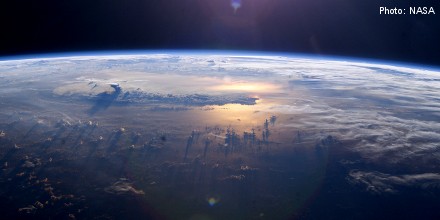Page added on July 25, 2011
Grantham: recycle and farm as if your life depended on it…because it will

In his last quarterly letter, GMO’s perma bear Jeremy Grantham highlighted with devastating effect the inevitable mismatch between finite resources and exponential population growth.
This quarter, he focuses on the ‘most dangerous’ parts of the coming shortages.
In a piece titled: ‘Resource Limitations 2: Separating the Dangerous from the Merely Serious’ Grantham orders the resource problems he believes the world currently faces by what he describes as ‘declining optimism’.
1. Energy
‘The transition from oil will give us serious and sustained problems. We passed peak oil per capita long ago and we are within 30 years, possibly within 10, of peak oil itself. The price will be volatile beyond our wildest dreams (or nightmares), and the price trend will rise, although at times this will be difficult to discern through the volatility.’
He says that behind oil, there is a relative plenty of natural gas and coal, which can, although with cost and difficulty, be substituted for oil. But even with coal and gas, however, we are dealing with only ‘many decades of supply, not centuries’.
2. Metals
‘Metals are, of course, a bigger long-term problem than energy. They are entropy at work … from wonderful metal ores to scattered waste.’
He predicts that eventually, the growth of both population and wealth will be limited and possibly even stopped by a lack of metals, but that should, with luck, be ‘a long time away’.
‘If we respond to increasing price pressures, as I’m sure we will, with a greater emphasis on quality and small scale along with an increasingly sensible and non-wasteful lifestyle, then we can push these serious constraints out for well over a hundred years..’
3. Agriculture
‘The trouble really begins with agriculture. This is the factor that I believe almost guarantees that we end up with a world population between 1.5 and 5 billion.’
‘ The only question for me is whether we get there in a genteel, planned manner with mild, phased-in restraints, or whether we run head down and at considerable speed into a brick wall.’
He says there are three particular aspects of agriculture where the shoe pinches the most: water, fertilizer, and soil.
Water
‘There is no doubt that water shortages will be a source of economic and social trouble forever. Countries will rattle sabers or, worse, go to war over access to river waters. That is certain.’
Currently he says we use our existing supplies of renewable fresh water with ‘desperate inefficiency and wastefulness’.
But hopes when the reality of reality of the situation becomes clear, the right changes will be made: ‘As prices rise, we can save not just a few percent but a great majority of our water by growing the right things in the right places and by sensibly sharing and recycling the resource.’
Fertilizer
Grantham believes fertilizers are less tractable. The three major fertilizers he concentrates on in his letter are: nitrogen, potassium and phosphorus.
He says nitrogen which is the most urgently needed of the three every year, is found in the greatest quantity so is happily, ‘the least problematical’.
However potassium or potash, he says, is in a less favourable situation.
‘Although it is found widely, very large and high grade (i.e., cheap) deposits are concentrated to quite a remarkable degree in two areas: one in Russia and Belarus and the other, happily for North America if we all stay friendly, in Canada.’
‘Unless there is considerable cartel-like behavior, which is certainly not unheard of these days with some commodities, then we have plenty of time to study the very long-term shortage problem.’
When it comes to phosphorus again the reserves are unevenly distributed, a fact Grantham thinks will spur ‘substantial gamesmanship’ within a few decades and leads him to believe that the long-term phosphorus supply is probably the ‘trickiest and most threatening issue to date’.
He says with between 50% and 75% of the reserves are in Morocco and “associated” Western Sahara, ‘Morocco’s share of phosphates makes Saudi Arabia’s share of oil look like small potatoes and, in the end, who values heating more than eating?’
He concludes: ‘If the phosphates were in my kingdom, I would try to make some hay’.
Soil
And now we reach the most potent problem to face us: soil erosion.
Grantham notes that for the planet as a whole, soil losses are certainly higher than replacement, and for some areas, notably in Africa, they are ‘disastrously higher.’
‘It is not clear what it will take to drive home the message that erosion is perhaps the single largest threat to our long-term well-being. It is certainly one of them. But erosion is insidious in that it has always crept up very slowly on both ancient and modern civilizations alike.’
‘Damage far out has little value, and there is no adjustment factor for damage to all of us collectively. Only the gain of the individual or the corporation appears in the spreadsheet.’ This Grantham argues is a ‘severe, perhaps even fatal, flaw in traditional free-market capitalism.’


Leave a Reply